Was ist Kombucha genau und welche wichtigen Inhaltsstoffe entstehen während der Fermentation im Getränk? Alle gesundheitlichen Wirkungen des Erfrischungsgetränks Kombucha im Überblick. Wie funktioniert die Fermentation mit Ansatzflüssigkeit im Gärgefäß genau? So einfach kannst du mit Erfolgsgarantie und unseren Rezepten direkt Zuhause los brauen.

Was ist Kombucha?
Kombucha ist ein fermentiertes Gärgetränk, das mit Hilfe einer Kultur (Teepilz) hergestellt wird. Der sogenannte Teepilz besteht aus verschiedenen Mikroorganismen, Bakterien- und Hefekulturen. Er verwandelt Tee und Zucker in ein gesundes Erfrischungsgetränk. Während des Fermentationsprozesses verstoffwechseln Bakterienkulturen und Hefen den gezuckerten Tee u.a. in wertvolle Vitamine, organische Säuren, rechtsdrehende Milchsäurebakterien und Enzyme. Dabei entsteht der unverwechselbare süß-saure Geschmack und prickelnde natürliche Kohlensäure. Das Gärgetränk steht in einer langen Tradition. Schon vor hunderten von Jahren wurde Kombucha in Asien und Osteuropa für seine gesunde Wirkung als Lebenselexier und Gesundheitsgeber geschätzt.
Die Inhaltsstoffe im Kombucha
Das Wort Fermentation ist vom lateinischen Wort Gärung abgeleitet. Ganz einfach gesagt handelt es sich um einen Prozess bei dem biologisches Material durch Mikroorganismen und deren Enzyme umgewandelt wird. Während der Herstellung von Kombucha können mit Hilfe eines Teepilzes/Scobys (Kombuchakultur) verschiedenste Inhaltsstoffe entstehen. Diese können sich in Anzahl und Zusammensetzung unterscheiden. So wie auch jeder Teepilz ein wenig anders aufgebaut ist. Der gezuckerte Tee dient der komplexen Kombuchakultur und seinen Mikroorganismen lediglich als Nährstoffquelle. Dabei ist am Ende des Prozesses nur noch ein kleiner Anteil Zucker vorhanden. Bei uns sind das mit 3 g pro 100 ml sogar ca. 40% weniger Zucker als bei anderen Kombucha-Herstellern. Auch die für den typisch sauren Kombucha-Geschmack verantwortliche Gluconsäure entsteht währenddessen. Gluconsäure wird im Dickdarm beispielsweise zu Butyrat abgebaut. Butyrat wiederum soll der Entstehung von Dickdarmkrebs entgegenwirken.

Die wichtigsten Facts zum Kombucha-Pilz
Alle Inhaltsstoffe im Überblick
| Bakterien- und Hefestämme | Acetobacter xylinum, Acetobacter oxydans, Gluconobacter oxydans, Gluconobacter xylinus, Saccharomyces apiculatus, Saccharomyces cerevisiae (Backhefe), Saccharomyces ludwigii, Schizosaccharomyces pombe |
| Vitamine | Vitamin B1, B2, B3, B6, B12, Vitamin C, Vitamin D, Vitamin E, Vitamin K, Folsäure |
| Organische Säuren | Apfelsäure, Bernsteinsäure, Essigsäure, Folsäure, Glucuronsäure, Gluconsäure, Malonsäure, Milchsäure, rechtsdrehende (L+) Milchsäure, Oxalsäure, Usninsäure, Zitronensäure |
| Spurenelemente und Mineralstoffe | Eisen, Magnesium, Natrium, Kalium, Kalzium, Kobalt, Zink |
| Sekundäre Pflanzenstoffe | Flavone, Isoflavonoide, Polyphenole |
| Enzyme, Aminosäuren und Gerbstoffe | u.a. 14 verschiedene Aminosäuren |
Diese Nährstoffe sind natürlich nur in einem unpasteurisierten und nicht gefiltertem Kombucha enthalten. Daher immer auf die Formulierung "raw" oder "roh" im Supermarkt achten. Einige Kombucha-Hersteller erhitzen ihre Getränke und töten so alle wichtigen Inhaltsstoffe ab. Solche erkennst du daran, dass sie nicht kühlpflichtig sind.

Die Wirkung: Wie gesund ist Kombucha?
Betrachtet man seine Ernährungsweise etwas genauer sind es manchmal nur kleine Stellschrauben, die uns helfen können Nährstoff- oder Vitaminmangel zu reduzieren. Auch fermentierte Getränke können so eine Stellschraube für dich sein. Genauso wie Tees ein großartiges Geschenk der Natur. Kombucha ist ähnlich wie Wasserkefir ein Superfood mit Tradition zum Trinken. Die lebenden Kombuchakulturen können die Verdauung und eine gesunde Darmflora unterstützen. Organische Säuren und Milchsäurebakterien können dabei helfen den Säurehaushalt im Darm in Balance zu halten. Welche weiteren positiven Eigenschaften das fermentierte Kombuchagetränk haben kann und andere wichtige Infos zu Wirkungen des Gärgetränks findest du hier.
Positive Effekte von Kombucha
Unser Kombucha kann dir dabei Helfen deinen Darm zu unterstützen. Mit den verschiedenen, im Kombucha vorhandenen, Kulturen können gute Bakterien im Darm vermehrt werden. Ein Großteil unserer Immunabwehr liegt im Mikrobiom. Ein aktiver und gesunder Darm steht also auch für ein starkes Immunsystem. Zusätzlich können während der Fermentation verschiedene wertvolle Vitamine, organische Säuren und Spurenelemente entstehen. So kannst du mit regelmäßigem Verzehr dein allgemeines Wohlbefinden verbessern und deinen Energiespeicher auffüllen. Außerdem hält dich z.B. unsere Sorte Raw Mate dank Teein sanft wach.
Wie genau wirkt Kombucha?
Seit jeher fermentieren Menschen Lebensmittel (z.B. Kefir, Kimchi, Sauerkraut). Vor allem die enthaltenen Milchsäurebakterien unterstützen die Verdauung und stärken den Darm. Die Wirkung der Kulturen und Bakterien, kann sehr individuell und gleichzeitig vielfältig sein. Genau wie ein Scoby unterschiedlich aussehen kann. Die verwendete Teesorte, die Zimmertemperatur, die Wasserqualität, die Fermentationszeit, die Ansatzflüssigkeit und die Zuckermenge beeinflussen den "Pilz" während der Herstellung von Kombucha. Die Teepilze werden auch liebevoll Scobys genannt. Englisch steht Scoby für Symbiotic Culture of Bacteria and Yeast. Also eine Kultur aus verschiedenen Bakterien und Hefen. Diese leben in einer Lebensgemeinschaft und schaffen es zusammen organische Säuren und andere wichtige Inhaltsstoffe herzustellen.
Gibt es unerwünschte Nebenwirkungen?
So wie jeder unpasteurisierte Kombucha ein wenig anders ist, reagiert auch jeder Mensch anders auf das Kombuchagetränk. Grundsätzlich gibt es keine bekannten Risiken, die mit dem Trinken verbunden sind. Wir empfehlen mit einer Flasche pro Tag zu starten und daraufhin ganz sanft in den Körper hineinzuhorchen. So merkst du sehr schnell welche Menge dir täglich gut tut. Schwangere und Kleinkinder sollten allerdings auf unser Lieblingsgetränk verzichten. Während der Fermentation entsteht ein minimaler Alkoholanteil. Ähnlich wie bei einem Orangensaft. Außerdem sollten Menschen mit Histaminintoleranz auf fermentierte Lebensmittel gänzlich verzichten.
Für wen ist Kombucha geeignet?
Das Teegetränk ist für jeden geeignet, der Lust hat ein gesundes Getränk in seinen Alltag zu integrieren. Vor allem Menschen mit Darmproblemen und einem schwachen Immunsystem können ihren Körper mit einer täglichen Dosis des Erfrischungsgetränks und wohltuenden Milchsäurebakterien unterstützen. Denn ein gesunder Darm unterstützt zu großen Teilen auch die natürlichen Abwehrkräfte. Außerdem eignet sich das fermentierte Teegetränk hervorragend für Veganer, die ihre Nährstoffspeicher zusätzlich auffüllen möchten. Wie oben beschrieben sollten Kleinkinder, Schwangere und Menschen mit Histaminintoleranz lieber verzichten.
How to Kombucha – so braust du deinen eigenen Tee!
Mit etwas Geduld kannst du mit vier einfachen Hausmitteln und unserem Raw Original ganz einfach dein neues Lieblingsgetränk Zuhause mit deinem eigenen Wunderpilz brauen. Dafür brauchst du nur Schwarzen Tee, Rohrzucker, Wasser und sauren unpasteurisierten Kombucha. Ein großes Glas und etwas zum Abdecken und der Zauber kann losgehen. Du kannst es nicht erwarten deinen eigenen Scoby zu züchten? Hier findest du neben Kombucha-Rezepten wichtige Tipps und Tricks rund um die Herstellung im Gärgefäß Zuhause! Züchte deinen eigenen Wunderpilz!
FAQs
Wieso ist Kombucha gesund?
Unsere Abfüllungen haben bis zu 50% weniger Zucker als herkömmliche Erfrischungsgetränke. Dank traditioneller Fermentation ohne Pasteurisierung mit dem Wunderpilz enthält jede Flasche lebende Bakterien- und Hefekulturen. Während der Fermentation entstehen außerdem vielfältige weitere Inhaltsstoffe. Fermentierte Lebensmittel, wie Kombucha und Wasserkefir, unterstützen nachweislich die Darmgesundheit.
Wann soll man Kombucha trinken?
Zunächst löscht er in jeder Lebenslage, besonders nach dem Sport, sehr gut den Durst. Außerdem kann das erfrischende Teegetränk nach einer schweren und fettigen Mahlzeit die Verdauung unterstützen. Er bietet einen gesunden Kaffee-Ersatz mit wenig Zuckergehalt. Auch als gesunde Alkohol-Alternative zum Mischen mit anderen Säften oder Zutaten eignet er sich perfekt.
Für wen ist Kombucha?
Für alle, die auf eine gesunde Ernährung achten und nach einer erfrischenden wohltuenden Alternative zu Limonaden suchen. Ihren Körper über Flüssigkeit mit wichtigen Nährstoffen unterstützen möchten. Menschen mit Darmproblemen. Sie können ihren Darm mit fermentierten Getränken unterstützen. Für Veganer, Sportler und sogar Paleo-Anhänger. Alle, die keine Lust auf industrielle, überzuckerte Massenware haben und ein Getränk mit vergleichsweise wenig Zuckergehalt suchen.
Kombucha aus dem Supermarkt vs. selbst herstellen – was ist besser?
Mit etwas Platz und Geduld lässt sich das Teegetränk in kleineren Mengen auch Zuhause herstellen. Als Fermentations-Anfänger können allerdings unbefriedigende Geschmäcker während der ersten Versuche entstehen. Die Fermentationsbedingungen sind oft nicht so hygienisch und professionell, wie die in einer richtigen Manufaktur. Wir fermentieren nach Jahrtausend alter Tradition. Ganz ohne unnötiges Pasteurisieren oder Filtern. So bleiben die vielen wichtigen Inhaltsstoffe am Leben. Allerdings gibt es auch Hersteller bei denen kaum noch Leben in der Flasche ist. Diese Produkte sind nicht kühlpflichtig.
Ist Kombucha basisch oder sauer?
Ähnlich wie saure Früchte wird Kombucha von unserem Körper basisch verstoffwechselt. Der saure Geschmack ist dabei etwas irreführend. Unser Säurehaushalt kann also mit Hilfe von Kombucha positiv beeinflusst werden. Die meisten Menschen tendieren dazu übersäuert zu sein.
Wie viel Zucker ist in Kombucha?
Das variiert tatsächlich je nach Herstellungsweise und Art des Ansatzes. Viele Kombucha-Hersteller nutzen deutlich mehr Zucker als wir. Sie bevorzugen den süßen, Limonaden Ähnlichen Geschmack. Wir nutzen soviel Zucker wie nötig und so wenig wie möglich. Denn unnötig viel Zucker ist am Ende auch nicht wirklich gesund. Das sind zurzeit 3 g pro 100 ml. Dabei ist die saure Note etwas dominanter, aber trotzdem super erfrischend. Das Wachstum des Kombuchapilz leidet trotzdem nicht darunter, denn die Fermentationszeit im Gärgefäß ist einfach ein wenig länger.
Wie viel Kalorien hat Kombucha?
Die Kalorien sind je nach Zutaten und Herstellung des Kombucha verschieden. In unseren abgefüllten Flaschen liegen die Kalorienwerte mit 12 kcal pro 100 ml im Getränk vergleichsweise niedrig. Je mehr Zucker desto mehr Kalorien am Ende des Fermentationsprozesses. Auch nachträglich zugefügten Säfte mit höherem Zuckergehalt können die Kalorienmenge erhöhen.
Was ist ein Scoby?
Der Teepilz oder Pilz, Hefepilz wird auch Scoby genannt. Englisch für Symbiotic Culture of Bacteria and Yeast. Also eigentlich gar kein Pilz, sondern eine Kultur aus verschiedenen Bakterien und Hefen. Diese leben in einer Lebensgemeinschaft und schaffen es zusammen organische Säuren und andere wichtige Inhaltsstoffe herzustellen. Der Scoby wird auch als Wunderpilz oder einfach als Pilz, Kombuchapilz bezeichnet. Er wird üblicherweise bei Zimmertemperatur in einem Gärgefäß mit Ansatzflüssigkeit aufbewahrt und je nach Bedarf zur Herstellung des Kombuchagetränks aktiviert.
Welchen Tee sollte ich für den ersten Ansatz mit meinem Wunderpilz verwenden?
Für den Ansatz deines eigenen Kombuchagetränks Zuhause solltest du Schwarztee oder Grüntee verwenden. Der Tee sollte ohne künstliche Aromen sein und am besten Bio-Qualität haben. Ansonsten gibt es keine Erfolgsgarantie für deinen Kombucha-Ansatz. So fühlt sich der Pilz (Kombuchapilz, Scoby, Wunderpilz) am wohlsten.
Wieviel Alkohol ist im Kombucha? Welchen Alkoholgehalt hat Kombucha?
Zunächst ist es wichtig zu verstehen, dass die Dauer und Art der Fermentation auch den Alkoholgehalt im Kombucha beeinflussen. Er kann bis zu 3% Alkohol enthalten. Meist ist es tatsächlich weniger. Nach 14 Tagen Gärung liegt der Alkoholwert ca. bei 0,5 bis zu 1 Prozent. Ähnlich wie ein Orangensaft. Kombucha der nicht pasteurisiert wurde und stetig weiter fermentiert, kann also im Alkoholgehalt variieren. Nach deutschem Lebensmittelrecht darf ein Getränk mit maximal 0,5% Alkohol als “alkoholfrei” bezeichnet werden.
Kombucha oder Kefir, was ist gesünder?
Wasserkefir und Milchkefir haben eine kürzere Gärdauer im Gärgefäß als Kombuchagetränke. Die verwendete Kefirknolle ist eine Art Klumpen aus Milchsäurebakterien und Hefen. Daher haben Milchkefir und Wasserkefir einen deutlich höheren Restzuckeranteil. Die Fermentationszeit von Wasserkefir beträgt bei Zimmertemperatur im Durchschnitt lediglich 1-2 Tage. Das Getränk hat dadurch natürlich eine höhere Erfolgsgarantie beim selber brauen Zuhause. Das macht Kefir am Ende aber, trotz lebendiger Hefekulturen, unattraktiver im Vergleich zu Kombucha. Kefir hat hingegen aufgrund des fehlenden Tees (Schwarztee) einen geringeren Koffeingehalt.
Zucker mit viel Melasse oder wenig Melasse verwenden?
Der Melasse-Anteil bei natürlichen Zuckersorten, wie z.B. Rohrohrzucker, Braunem Zuckern und Vollrohrzucker ist höher als der Melasse-Anteil bei einem weißem raffiniertem Industriezucker. Melasse enthält wertvolle Mineralien und Spurenelemente. Diese sorgen dafür, dass der Teepilz deutlich schneller wachsen kann. Ein hoher Anteil an Melasse im Zucker kann also helfen schneller und effektiver zu fermentieren und eine höhere Erfolgsgarantie bei deinem Kombucha zu haben.
Welche Basics benötige ich, um selbst Kombucha herzustellen?
- Starterkultur
- Kombucha Scoby
- Tee/Tees
- Baumwolltuch als Abdecktuch
- Verschlussspanner (Gummi/ Band)
- Gefiltertes Wasser
- Zucker
- Gärgefäß aus Glas

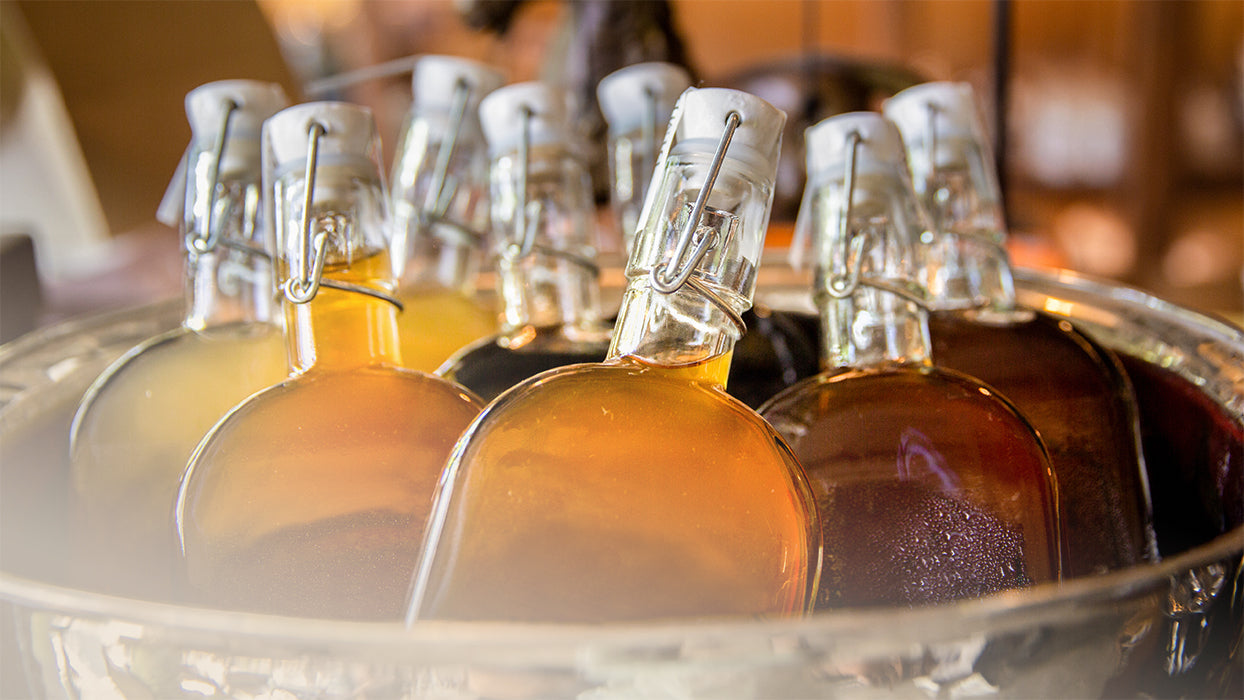
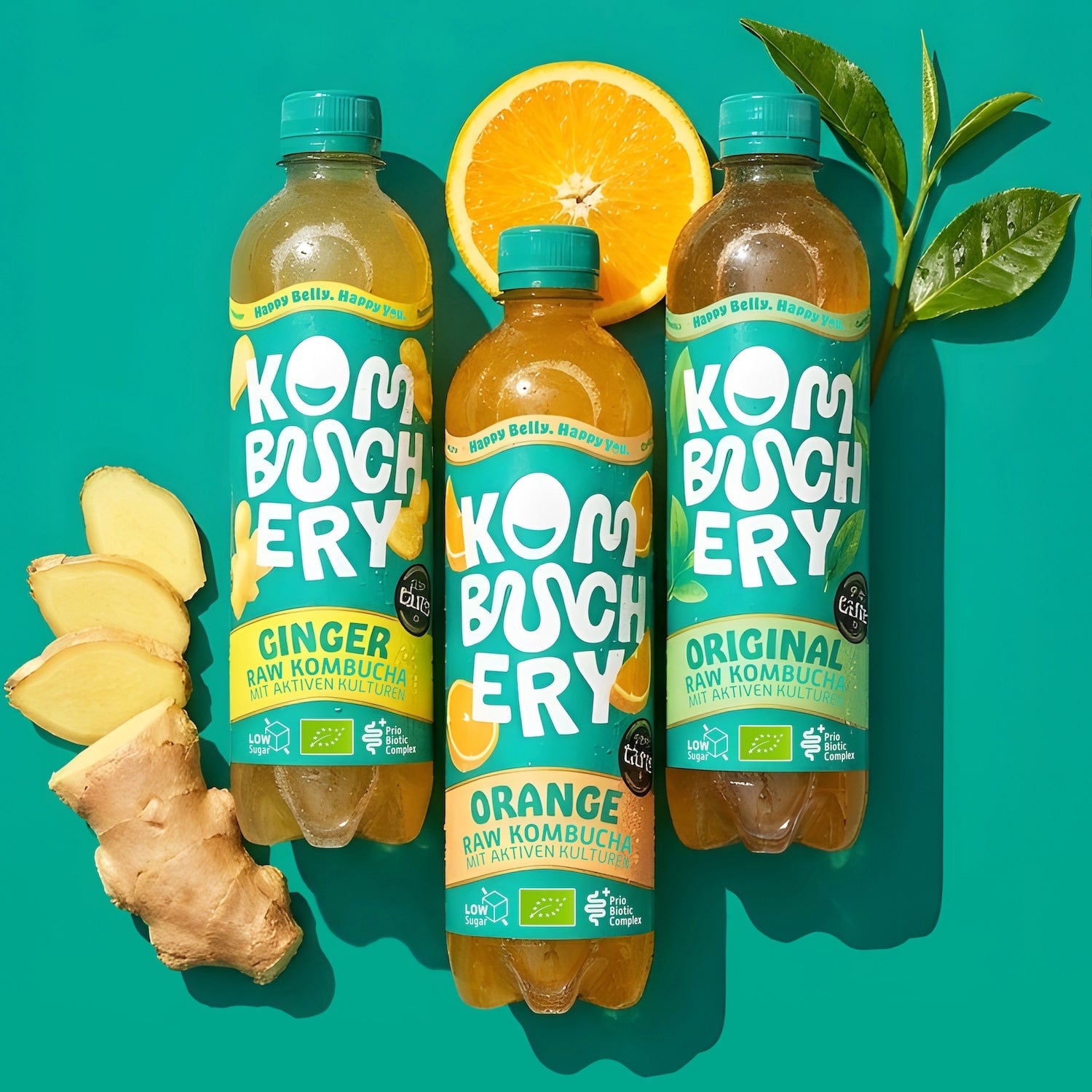
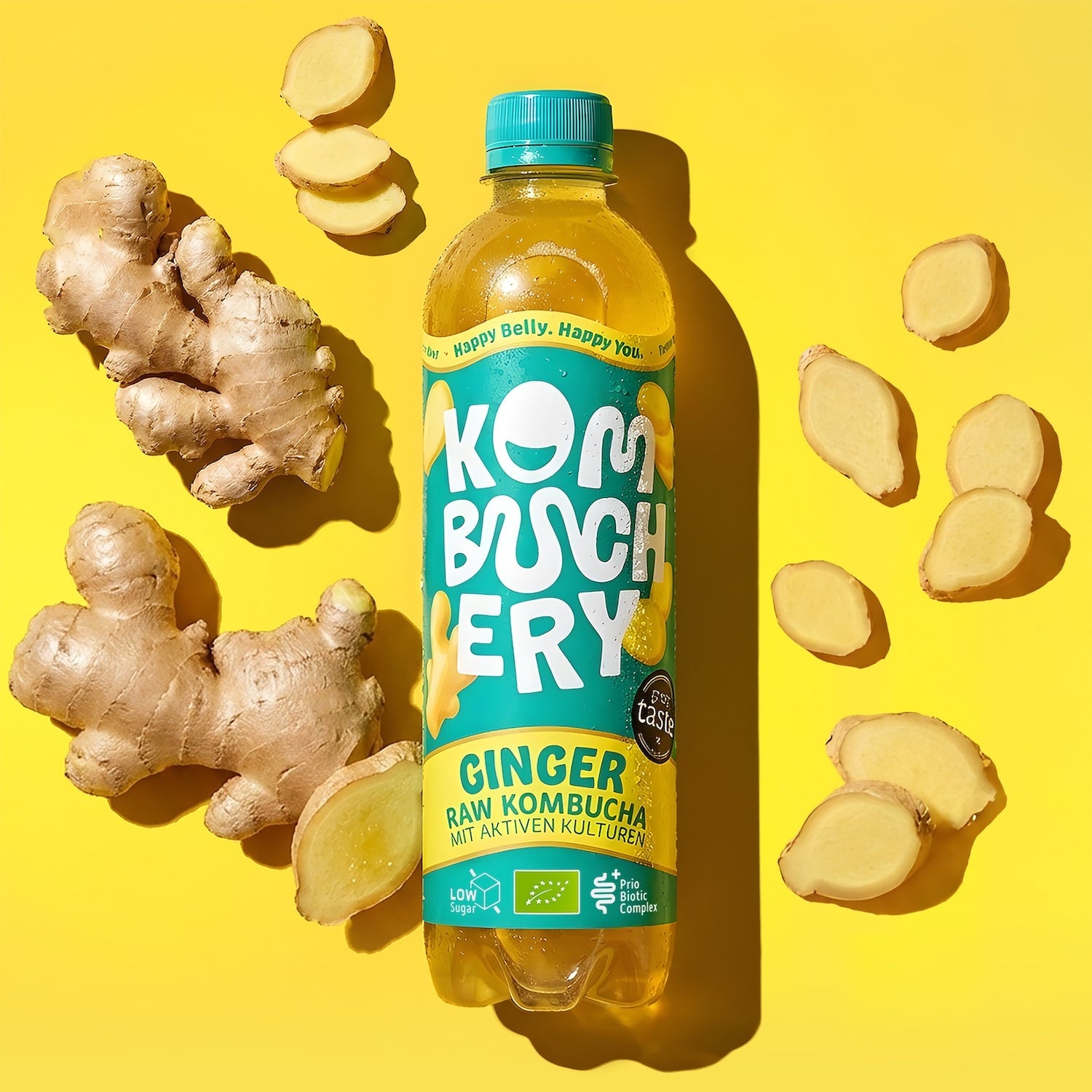

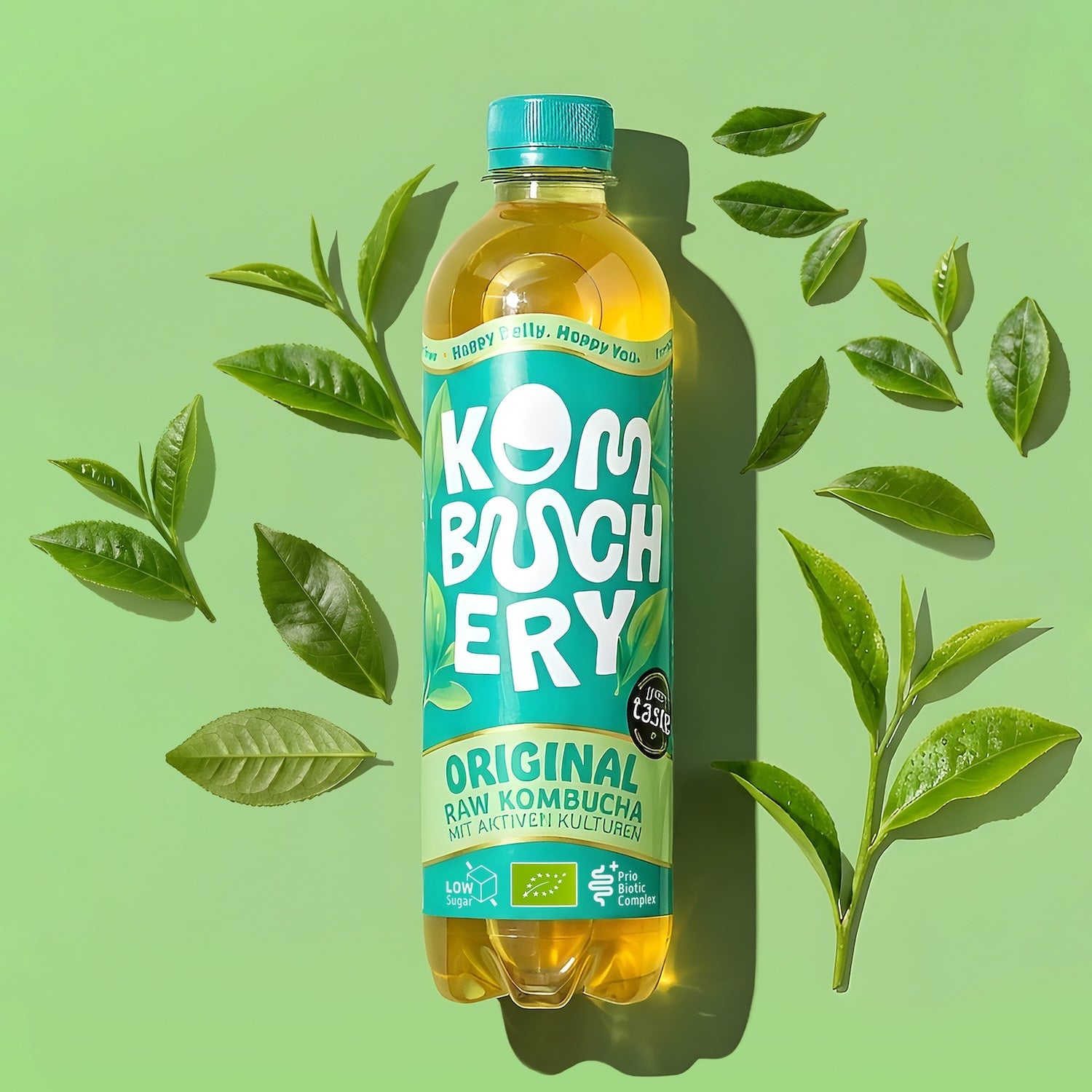
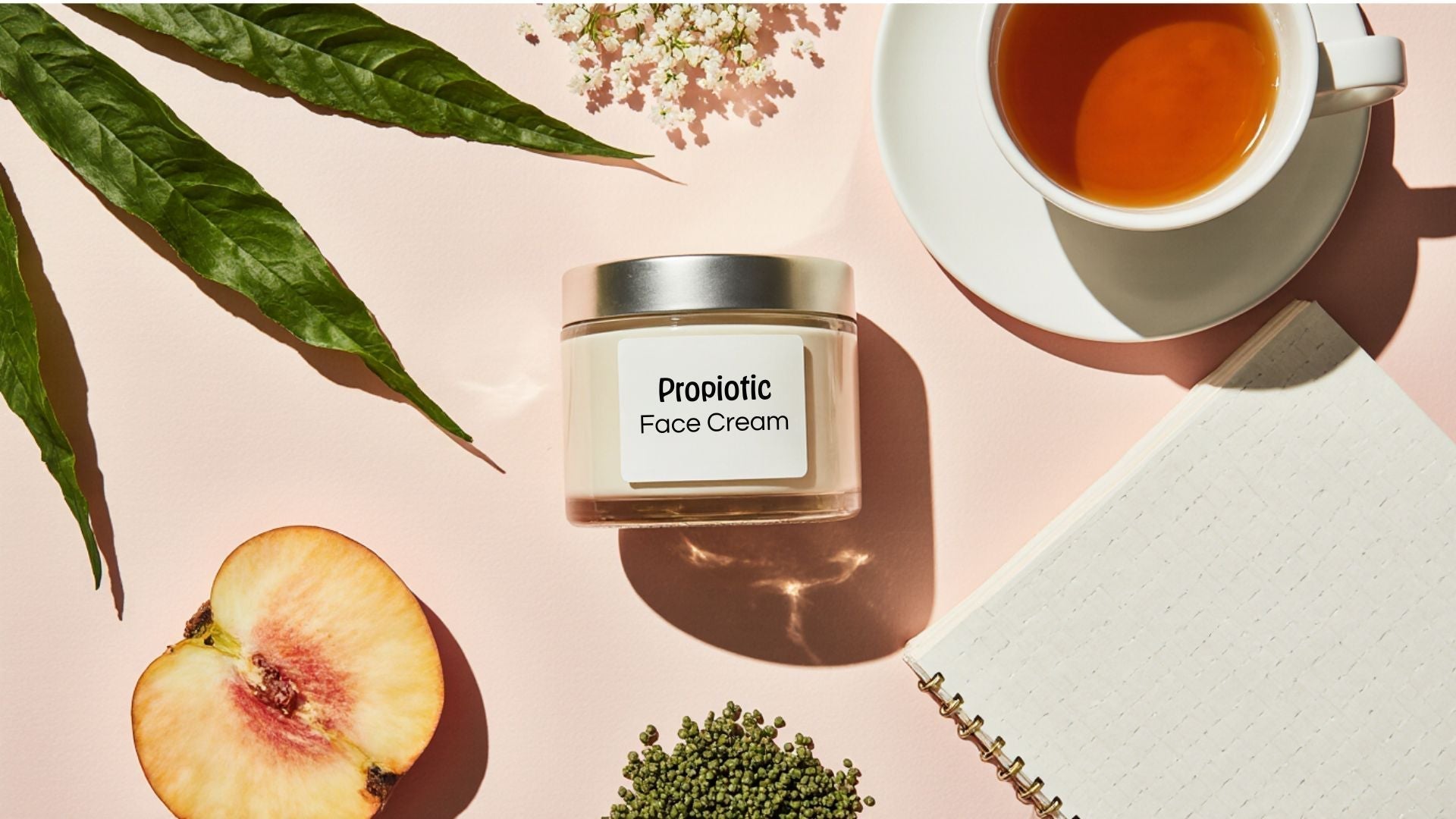


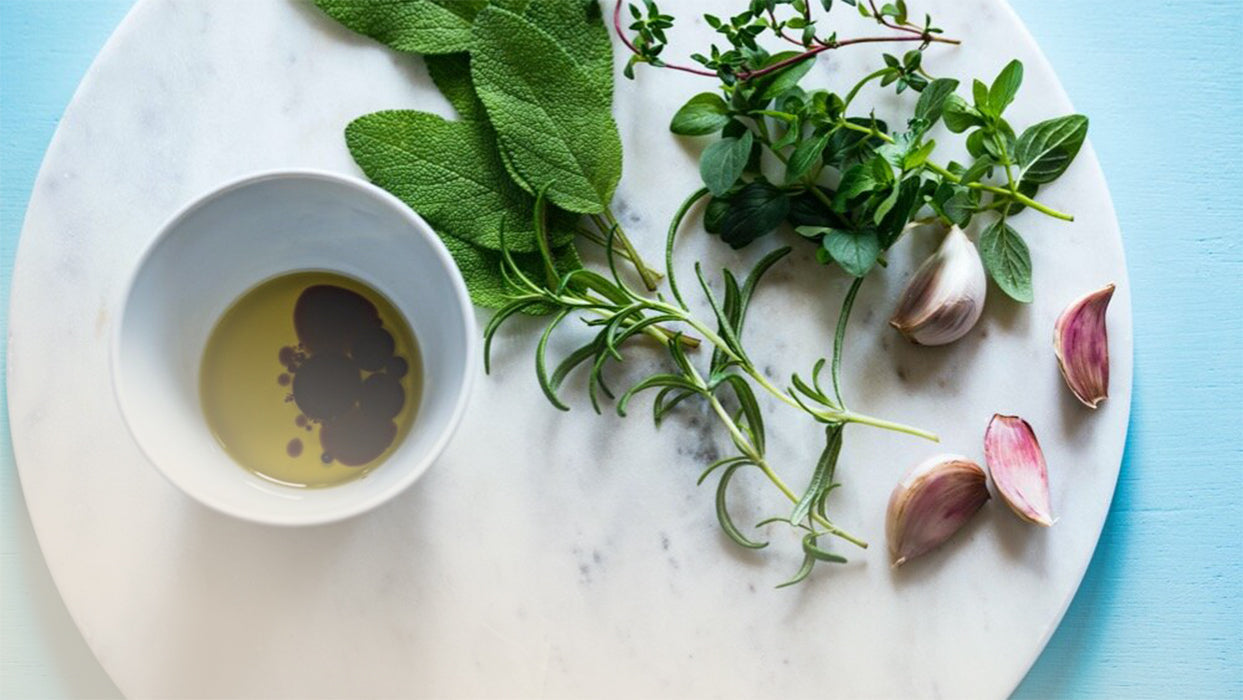

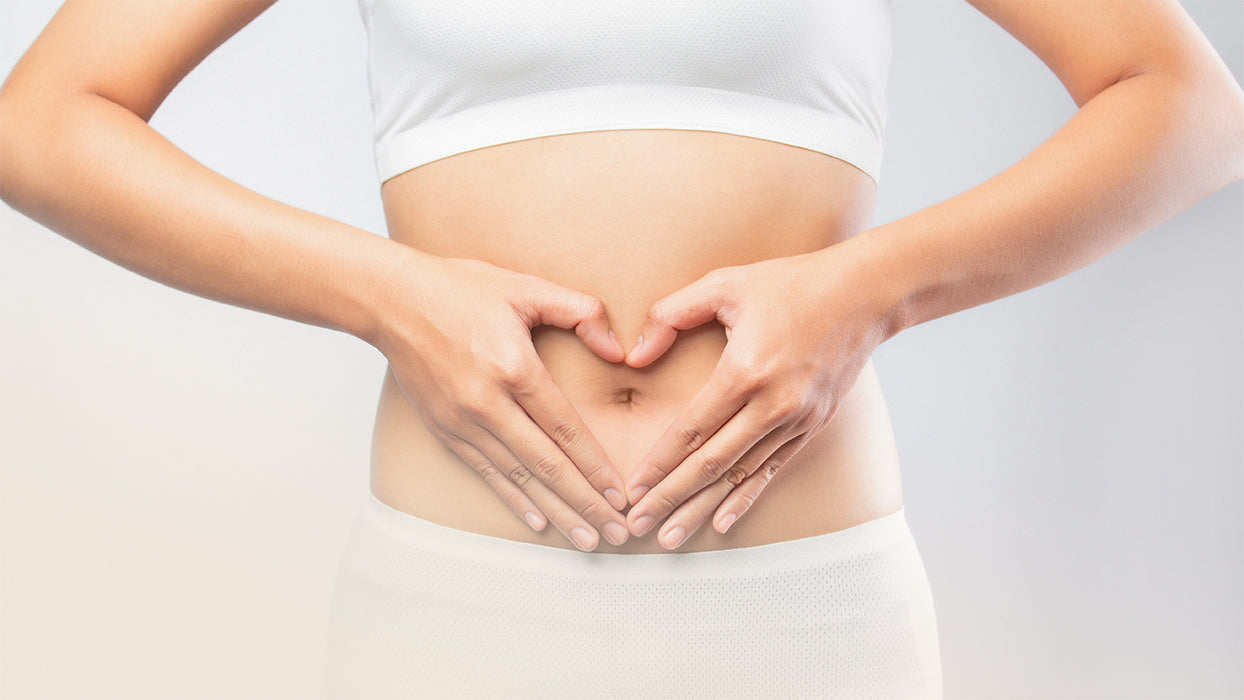
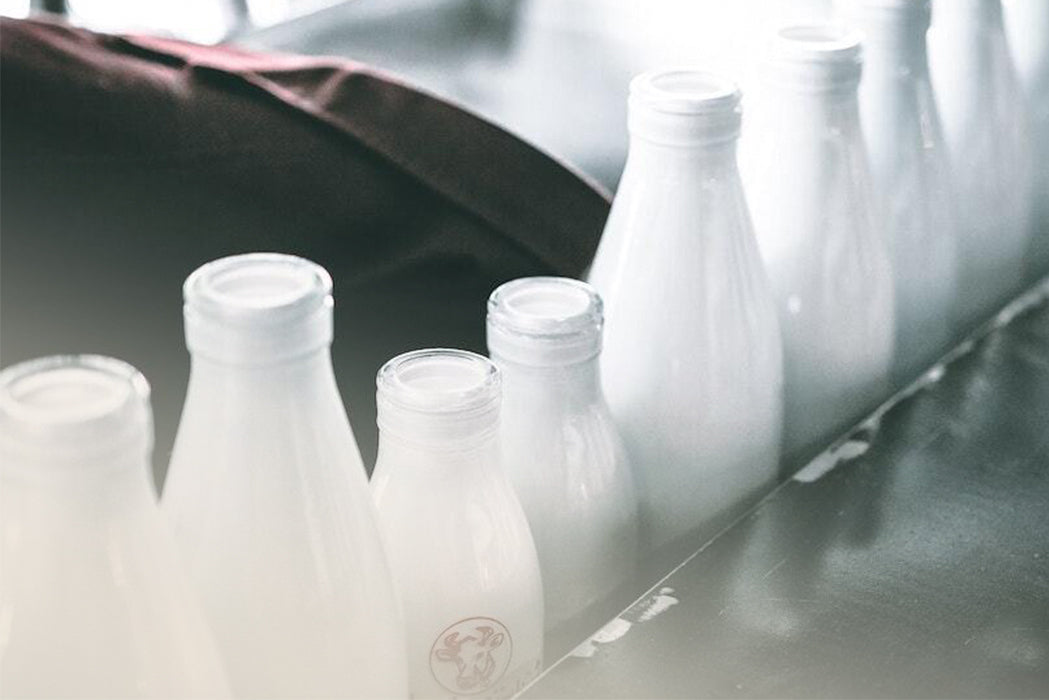
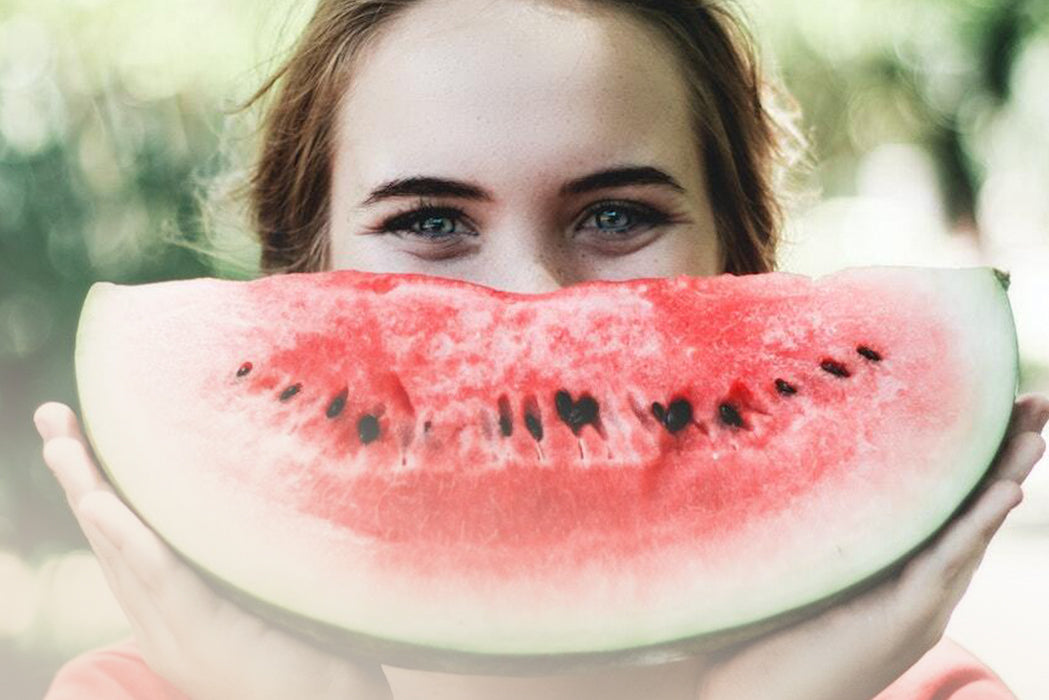
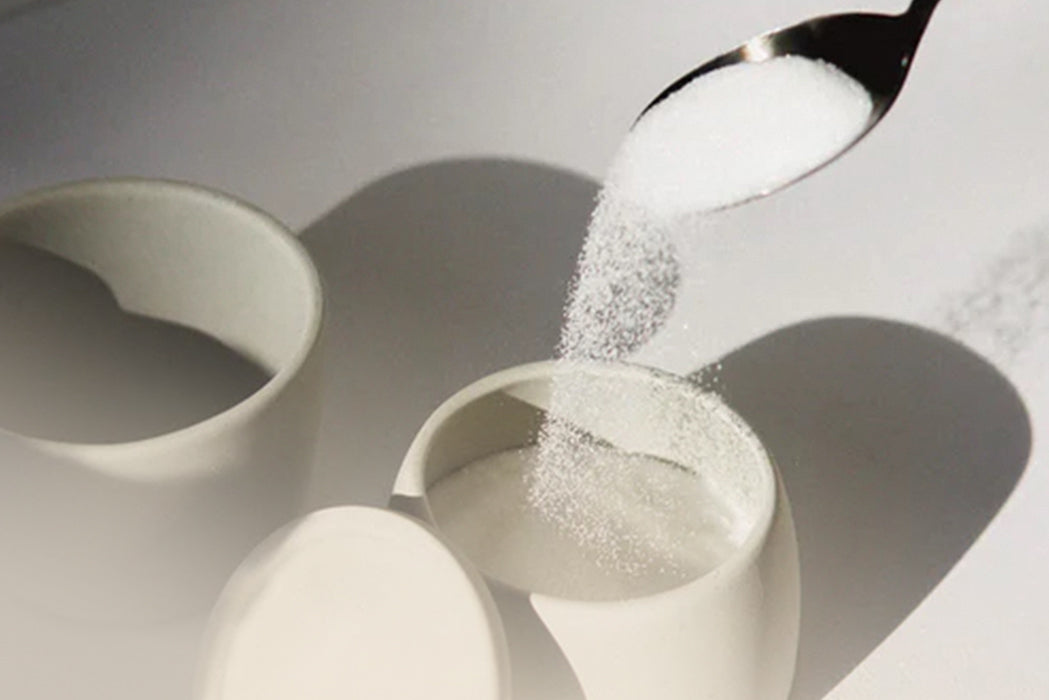
Teilen: